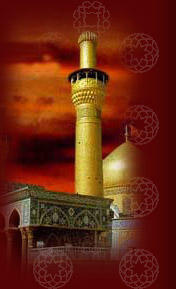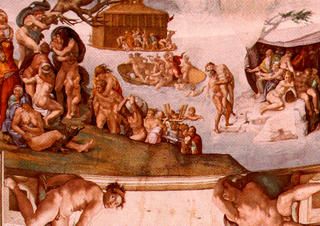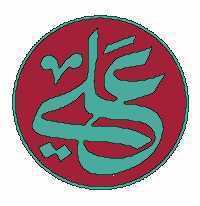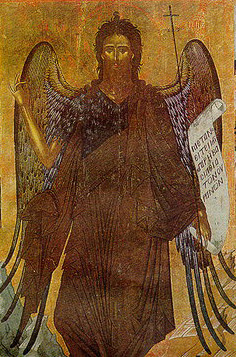Ramadan mubarak la-kum!

رمضان مبارك لكم
Here's a fantastic article on the 'meaning of Ramadan' from alt.muslim by Ibrahim Abusharif, who also regularly posts equally thoughtful, and well-written web-logs at fromclay.blogspot.com. Check it out.
Ramadan, Counterculture, And Soul
In one month, we're given the assignment of defrocking the ephemeral world of its authority over us, and to reinstate a spiritual bearing that helps us perceive where permanence lies.
By Ibrahim N. Abusharif, October 4, 2005
Each religion has a history. Among the aspects common to most of them is the fact that seasons of fast have long been part of their spiritual regimen. For millennia sages of diverse experiences have offered insights, esoteric and practical, on the benefits associated with voluntary deprivation for a specific time and for a transcending purpose. They have expanded on how the molecular realm of food and drink, for example, connects with the intangible realm of will and choice and of gratitude and conscience, and how certain sublime knowledge comes only to those who have mastered their desires. But nestled among the insights there may also be an indictment especially germane today: apparently, there is something corrupting about going through a full year in this life without some major interruption in habit, a break from conformity, that helps us to step outside our cartoon world. Ramadan, the Muslim season of fast, is such a disturbance. In one month we're given the peculiar assignment to defrock the ephemeral world of its authority over us and to reinstate a spiritual bearing that, if unsuppressed, is competent in perceiving where permanence lies and privy to the sham of postmodernism and its strobe-light logic. In contemporary terms, fasting the month of Ramadan is a countercultural movement that confronts an ethos that tries to cancel the interior of religion and discount the importance of rituals in human life. What the modern aspirant does in Ramadan is hardly subtle. In depriving ourselves of food and drink from dawn to dusk, we implicitly defy a despotic marketing imagination that has deputized nearly all of us to serve a culture of "buy and dispose and buy more." This depletes resources, darkens the sky, and melts Arctic glaciers. But it also dulls our sense of the sacred. We each have a body, a fact we're constantly reminded of, and a body does have needs, organic and sensual, which we cater to day and night. But to submit to the curriculum of fundamentalist secularists that "body" defines humanity is a dereliction that revealed religion has always warned of. We are created from the clay of the earth but are also infused with a soul that has no material correlate in this world. Religion has recognized this duality, not as a glitch in our creation, but as a trial. Somewhere in the teachings of all the great ones (including Abraham, Moses, Jesus, and Muhammad), there's an un-asterisked point: in negotiating the material and spiritual selves, one brushes up against salvation. The choice, they have stressed, comes down to the question: what aspect of our humanity do we devote ourselves to? For the Muslim, the nurturing of the soul is paramount and is guided by what we offhandedly call in pamphlets the "five pillars of Islam," essential rites of worship that have been passed down from the Prophet Muhammad. These pillars start to lose their meaning when we forget a baseline understanding of religion: Islam insists that each of us is born into this world with a pure condition, a state of grace, in fact. While humans may be feeble, sometimes foolish, belligerent, and forgetful, our center was made uncorrupt. This is equally true for men and women. The rites of worship and the way of life they engender are meant to bring us closer to our original state because it is not confused about God nor indifferent to our role in His world. Fasting the month of Ramadan is one of these pillars, unique among them, in fact, because, as far as rites go, its very form connects well with the unseen, since the "act" of fasting is about refraining, which is invisible and altogether private. Unlike prayer, pilgrimage, charity, and even the testimony of faith, which involve body, money, or voice, fasting is hidden and is permitted close dwelling with other concealed aspects of the human creation that the consumer of popular culture is scolded to neglect. As far as time is concerned, Ramadan is the ninth month of the Muslim calendar, but it is also a word with a lexical meaning. It refers to heat, the intense temperatures required to purify a precious metal from alloys mixed with it. The end result is an uncontaminated shine, purified by trial. On this count, Ramadan can be a disrobing experience. It's a month that can expose the unsavory alloys that dodged our defenses, not the least of which are envy, arrogance, selfishness, pretension, and a general inclination toward the ephemeral and a discounting of what lasts forever. During this time, our devotions are supposed to help us reclaim the organizing principles of revealed religion, which cannot really happen without regaining control over our desires. If the coup is successful, scholars say, then there's spiritual manumission, a kind of freedom in which we "remember." Interestingly, the Arabic word for "humanity" is related to the Arabic term that means "forgetfulness" (as some Arab linguists have suggested). What this implies is that the human being's chief hurdle in his salvation-quest is to actively remember the ultimate drama of life: we have a Maker; our lives are brief and with purpose; we are accountable for what we do; and after our earthly lives, we all shall live again and be brought back to God. The religion project has always sought to help us remember, not something new, but what we all know intuitively. In each of us there is this soul, a spiritual master, originally very close and aware of God. In the tumble of a crowded life, however, we are prone to silence or ignore that spirit. This is especially true when there is subtle pressure to forget our unseen origins. Ramadan mitigates this pressure. The spiritual aspirant is freer to see gain through subtraction: more faith through emptying, eloquence by learning silence, and honor in being humble. It is an axiom of Islam that matters of salvation and faith involve choice and effort, everyday. Faith in God and purity of heart do not survive a passive relationship. God-consciousness is not a state per se, but a course and always so. God by His very nature is forgiving and merciful. He does not need an event in history or violence to forgive. What He asks of us is to remember Him and have this remembrance honorably expressed in what we do. And in the event of failure, there is recourse in asking for forgiveness, supplicating with a penitent heart that rejects despair. In the Quran, despair is severely censured and associated with disbelief itself. The reason for this is self-evident: without hope, faith is simply not possible. I remember a conversation with a zoology professor of mine during my undergraduate days. He said that it is unlikely that creatures deep in the sea have any kind of awareness of what it means to be wet, not even an awareness commensurate to primitive brains. But the irony is not restricted to fish: the greater the immersion the less aware we become of it. There is an observation generally agreed upon among religious folk, that there is indeed an immersion in the fleeting realm, and it's nearly impossible to escape it without help. It is before our senses, from billboards to broadcasts. And after a while, we're disabled from even noticing. Ramadan is help, a knock on a door, an invitation to walk out of the cave.Ibrahim N. Abusharif is the editor-in-chief of the Starlatch Press, a Chicago-based publishing house. You may email him at ibrahim_feedback@yahoo.com or visit his blog From Clay.
In one month, we're given the assignment of defrocking the ephemeral world of its authority over us, and to reinstate a spiritual bearing that helps us perceive where permanence lies.
By Ibrahim N. Abusharif, October 4, 2005
Each religion has a history. Among the aspects common to most of them is the fact that seasons of fast have long been part of their spiritual regimen. For millennia sages of diverse experiences have offered insights, esoteric and practical, on the benefits associated with voluntary deprivation for a specific time and for a transcending purpose. They have expanded on how the molecular realm of food and drink, for example, connects with the intangible realm of will and choice and of gratitude and conscience, and how certain sublime knowledge comes only to those who have mastered their desires. But nestled among the insights there may also be an indictment especially germane today: apparently, there is something corrupting about going through a full year in this life without some major interruption in habit, a break from conformity, that helps us to step outside our cartoon world. Ramadan, the Muslim season of fast, is such a disturbance. In one month we're given the peculiar assignment to defrock the ephemeral world of its authority over us and to reinstate a spiritual bearing that, if unsuppressed, is competent in perceiving where permanence lies and privy to the sham of postmodernism and its strobe-light logic. In contemporary terms, fasting the month of Ramadan is a countercultural movement that confronts an ethos that tries to cancel the interior of religion and discount the importance of rituals in human life. What the modern aspirant does in Ramadan is hardly subtle. In depriving ourselves of food and drink from dawn to dusk, we implicitly defy a despotic marketing imagination that has deputized nearly all of us to serve a culture of "buy and dispose and buy more." This depletes resources, darkens the sky, and melts Arctic glaciers. But it also dulls our sense of the sacred. We each have a body, a fact we're constantly reminded of, and a body does have needs, organic and sensual, which we cater to day and night. But to submit to the curriculum of fundamentalist secularists that "body" defines humanity is a dereliction that revealed religion has always warned of. We are created from the clay of the earth but are also infused with a soul that has no material correlate in this world. Religion has recognized this duality, not as a glitch in our creation, but as a trial. Somewhere in the teachings of all the great ones (including Abraham, Moses, Jesus, and Muhammad), there's an un-asterisked point: in negotiating the material and spiritual selves, one brushes up against salvation. The choice, they have stressed, comes down to the question: what aspect of our humanity do we devote ourselves to? For the Muslim, the nurturing of the soul is paramount and is guided by what we offhandedly call in pamphlets the "five pillars of Islam," essential rites of worship that have been passed down from the Prophet Muhammad. These pillars start to lose their meaning when we forget a baseline understanding of religion: Islam insists that each of us is born into this world with a pure condition, a state of grace, in fact. While humans may be feeble, sometimes foolish, belligerent, and forgetful, our center was made uncorrupt. This is equally true for men and women. The rites of worship and the way of life they engender are meant to bring us closer to our original state because it is not confused about God nor indifferent to our role in His world. Fasting the month of Ramadan is one of these pillars, unique among them, in fact, because, as far as rites go, its very form connects well with the unseen, since the "act" of fasting is about refraining, which is invisible and altogether private. Unlike prayer, pilgrimage, charity, and even the testimony of faith, which involve body, money, or voice, fasting is hidden and is permitted close dwelling with other concealed aspects of the human creation that the consumer of popular culture is scolded to neglect. As far as time is concerned, Ramadan is the ninth month of the Muslim calendar, but it is also a word with a lexical meaning. It refers to heat, the intense temperatures required to purify a precious metal from alloys mixed with it. The end result is an uncontaminated shine, purified by trial. On this count, Ramadan can be a disrobing experience. It's a month that can expose the unsavory alloys that dodged our defenses, not the least of which are envy, arrogance, selfishness, pretension, and a general inclination toward the ephemeral and a discounting of what lasts forever. During this time, our devotions are supposed to help us reclaim the organizing principles of revealed religion, which cannot really happen without regaining control over our desires. If the coup is successful, scholars say, then there's spiritual manumission, a kind of freedom in which we "remember." Interestingly, the Arabic word for "humanity" is related to the Arabic term that means "forgetfulness" (as some Arab linguists have suggested). What this implies is that the human being's chief hurdle in his salvation-quest is to actively remember the ultimate drama of life: we have a Maker; our lives are brief and with purpose; we are accountable for what we do; and after our earthly lives, we all shall live again and be brought back to God. The religion project has always sought to help us remember, not something new, but what we all know intuitively. In each of us there is this soul, a spiritual master, originally very close and aware of God. In the tumble of a crowded life, however, we are prone to silence or ignore that spirit. This is especially true when there is subtle pressure to forget our unseen origins. Ramadan mitigates this pressure. The spiritual aspirant is freer to see gain through subtraction: more faith through emptying, eloquence by learning silence, and honor in being humble. It is an axiom of Islam that matters of salvation and faith involve choice and effort, everyday. Faith in God and purity of heart do not survive a passive relationship. God-consciousness is not a state per se, but a course and always so. God by His very nature is forgiving and merciful. He does not need an event in history or violence to forgive. What He asks of us is to remember Him and have this remembrance honorably expressed in what we do. And in the event of failure, there is recourse in asking for forgiveness, supplicating with a penitent heart that rejects despair. In the Quran, despair is severely censured and associated with disbelief itself. The reason for this is self-evident: without hope, faith is simply not possible. I remember a conversation with a zoology professor of mine during my undergraduate days. He said that it is unlikely that creatures deep in the sea have any kind of awareness of what it means to be wet, not even an awareness commensurate to primitive brains. But the irony is not restricted to fish: the greater the immersion the less aware we become of it. There is an observation generally agreed upon among religious folk, that there is indeed an immersion in the fleeting realm, and it's nearly impossible to escape it without help. It is before our senses, from billboards to broadcasts. And after a while, we're disabled from even noticing. Ramadan is help, a knock on a door, an invitation to walk out of the cave.Ibrahim N. Abusharif is the editor-in-chief of the Starlatch Press, a Chicago-based publishing house. You may email him at ibrahim_feedback@yahoo.com or visit his blog From Clay.






























